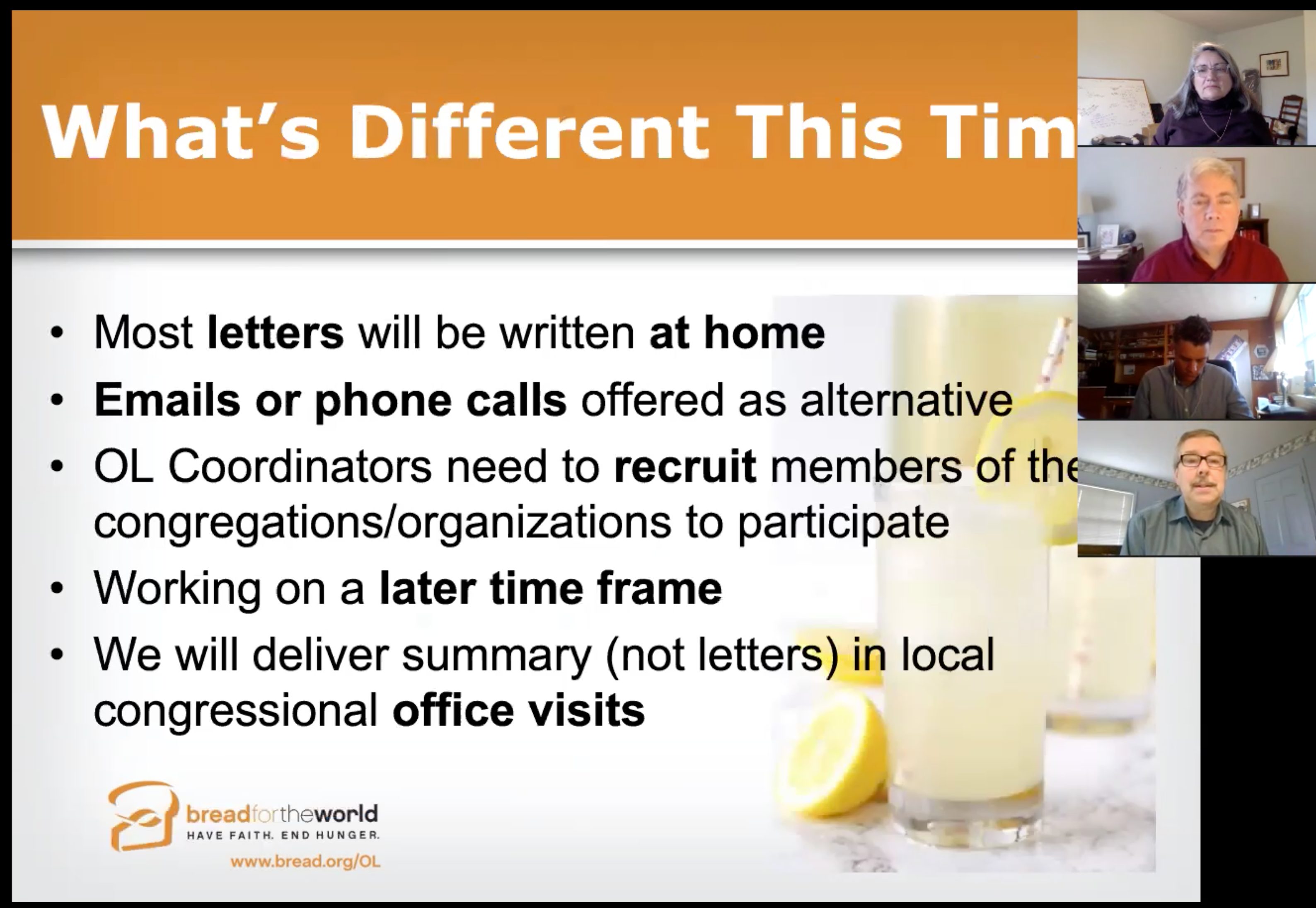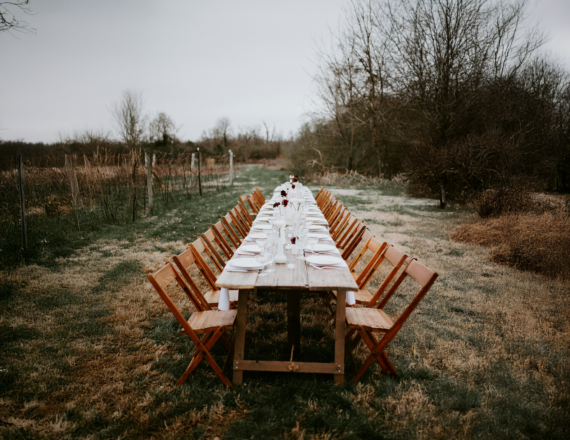By Robin Stephenson
Growing advocacy is as important as ever.
“Coronavirus and social distancing changes the way we do things, but not why,” said Matt Gross, director of organizing at Bread for the World.
A record-breaking number of people are losing incomes and livelihoods daily, while hardship increases for the 37.2 million Americans who already struggle to put food on the table.
“The coronavirus is not just a health crisis, it is a hunger crisis,” Gross said.
Sheltering in place from makeshift home offices and kitchen tables across the nation, organizers and their grassroots leaders are finding new and creative ways to congregate, advocate, and to facilitate activities like the Offering of Letters—Bread’s signature letter-writing campaign.
COVID-19 is a bump, not a barrier for faithful leadership—and leaders are stepping up and pushing forward amid this crisis.
“Working apart doesn’t mean we can’t work together,” said California’s senior organizer, David Gist. Mid-March, he held an online gathering for 35 leaders to coordinate their advocacy and letter-writing strategy via video conference. “We are learning and improving as we embrace new technology, and I’m really impressed with how eager and adaptable CA leaders are to advocate.”
Adaptability best describes Bread Indiana’s strategy. The Central Indiana leadership team has perfected an ecumenical letter-writing campaign by coordinating multiple church writing events. Last year, the campaign produced 4,000 letters.
“When life gives you lemons, make a do-it-at-home Offering of Letters,” Dave Miner, team chair, told 50 Bread members during an online training last month.
Miner and his team have adjusted their campaign time frame, provided more options than just hand-written letters, and created a tiered system of recruiting letter writers through peer-to-peer relationships. Miner thinks they may find the new opportunities are even more impactful. “Different is powerful,” he said.
For Ohio-based organizer Nicole Schmidt, flexibility is the guiding principle.
“We don’t know where we will be in two months,” said Schmidt, who is working with her leadership team to ensure that participants without access to computers are still able to participate. They plan to go “old school” and use the church’s printed newsletter to build excitement and a sense of community. “We just need to get creative and think outside the box,” she said.
Even members of Congress are leaning into technology to meet with their constituents.
Sean Kim, student and a member of the Joshua Heart Foundation’s Bread advisory board was excited about a March meeting with his Congresswoman, Lois Frankel (Fl-21). He even planned the suit he would wear. The meeting was moved to video conference as concerns about the spread of contagion grew. “Although it was slightly disappointing that I wouldn’t be able to tell my teachers that I missed their classes to meet with a Congresswoman, I knew that participating in the call would be just as rewarding as meeting Mrs. Frankel in person,” he wrote.
“Crises like these put a fine light on the importance of leadership,” said Gross, who encourages Bread members to stay in touch with regional organizers and be ready to react to a fluid and changing political landscape.
Many organizers are holding online meetings in the next few weeks to talk about the impact of the virus on hunger and what advocates can do. Registration is also open for regional webinars in May.
Uncertainty about the future is no deterrent to people of faith who are compelled to advocate for a world without hunger. “We need to stay the course and stay on call,” Gross said.
For churches or individuals writing letters, Bread for the World has updated the sample letter to reflect advocacy that addresses hunger and the coronavirus. You can download the letter at the Offering of Letters toolkit webpage.
Robin Stephenson is senior manager for digital campaigns at Bread for the World.



